阅读:0
听报道
推文人 | 余锦亮
原文信息:Ananyev M, Guriev S. Effect of income on trust: evidence from the 2009 economic crisis in Russia[J]. The Economic Journal, 2018,129:1082-1118
引言
“信任”是现代市场经济和金融体系运行的基础前提,没有社会信任,任何经济合作和基于多数投票规则决定的公共项目都将很难进行。因而,研究理解决定社会信任水平的首要因素具有重要的现实意义。收入水平被认为是影响“信任”的首要关键变量,长期处于贫困状况会使个体只关注核心家庭的生存状况,缺少与他人合作共建的意愿,容易形成“无道德家庭主义(Amoral Familism)”。
本文基于2008年8月开始的全球经济危机这一未预期外生的准自然实验冲击,使用俄罗斯大规模的微观调查数据(主要是危机发生前第2季度和危机中2009年第1季度的两轮调查数据),实证分析了收入与信任这两者之间的因果关系。结果发现:(1)收入水平每下降10%会导致信任程度显著降低5%左右;(2)进一步研究发现,危机对信任程度冲击程度较轻的地区随着经济和收入水平的恢复而得到了恢复,而危机对信任程度冲击程度较重地区则并没有随着经济的恢复而得到了恢复,其负向效应持续存在。
实证策略与结果分析
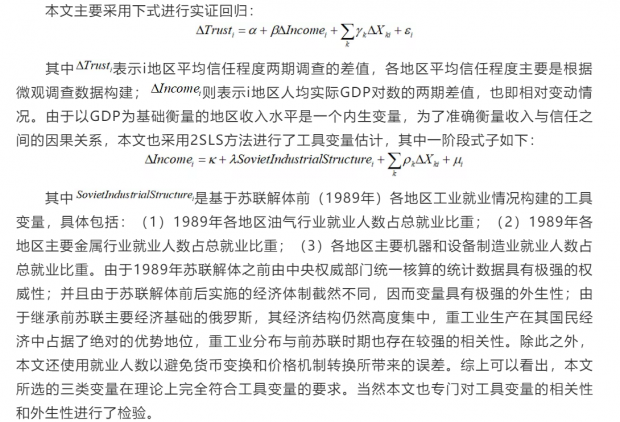
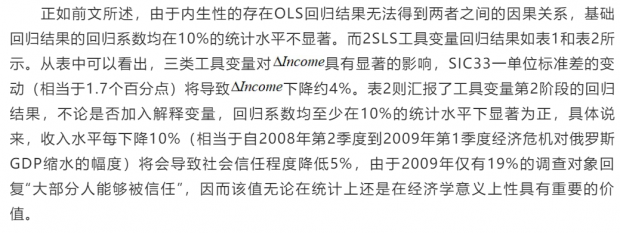
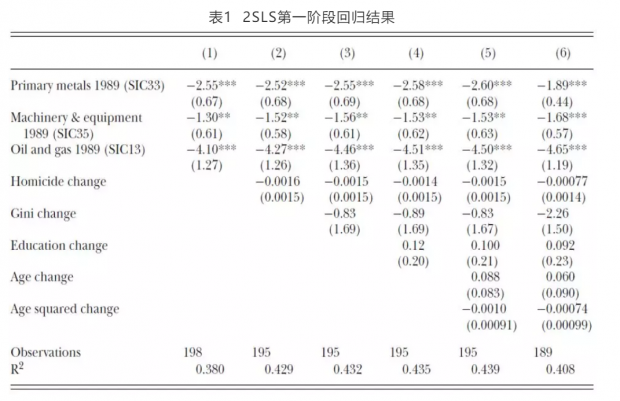
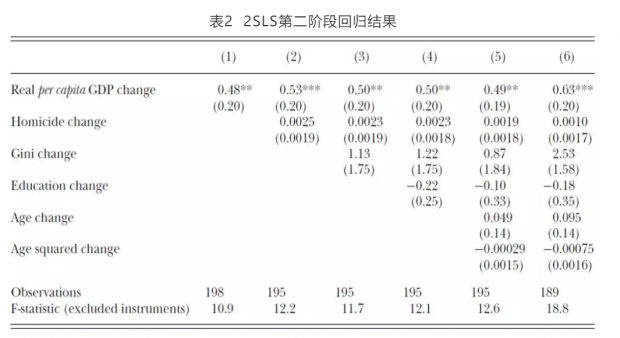
稳健性分析与机制检验
作者在本文还进行了一系列的稳健性分析和机制检验,在这里我们仅对其中关键的部分进行说明。
为了说明社会信任程度的下降主要是由于2008年经济危机这一事件而非其他因素引起的,作者利用2005年和2008年的微观调查数据,构建了危机前社会信任程度的变动指标,采用工具变量法进行了安慰剂检验。回归结果如表3所示。回归系数虽然显著,但其均显著为负。说明上文回归结果并非由于遗漏变量等问题引起的,即便存在遗漏变量问题,也只会进一步加强表2中的正向效应。
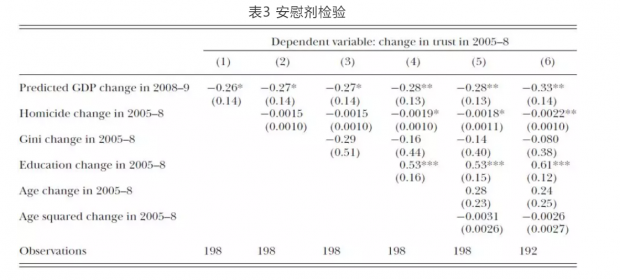
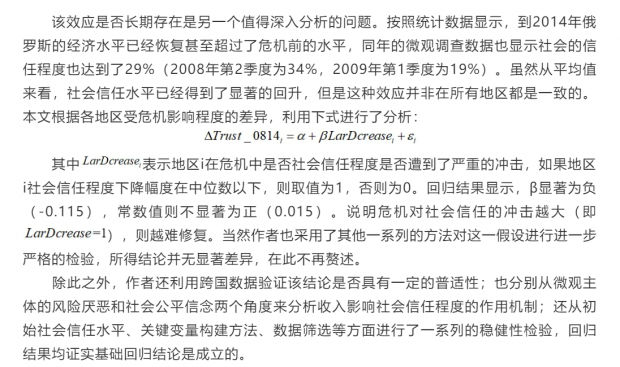
结论
本文的研究结论虽然简单但却具有重要的政策意义:在危机发生时,政府应当迅速并且果断迅速实施强有力的逆周期财政货币政策,以防止危机给社会信任带来的严重冲击,以维持经济社会的稳步运行。
Abstract
This paper draws on a natural experiment to identify the relationship between income and trust. We use a unique panel dataset on Russia where GDP experienced an 8 percent drop in 2009. The effect of the crisis had been very uneven among Russian regions because of their differences in industrial structure inherited from the Soviet times. We find that the regions that specialize in producing capital goods, as well as those depending on oil and gas, had a more substantial income decline during the crisis. The variation in the industrial structure allows creating an instrument for the change in income. After instrumenting average regional income, we find that the effect of income on generalized social trust (the share of respondents saying that most people can be trusted) is statistically and economically significant. Controlling for conventional determinants of trust, we show that 10 percent decrease in income is associated with 5 percentage point decrease in trust. Given that the average level of trust in Russia is 25%, this magnitude is substantial. We also find that post-crisis economic recovery did not restore pre-crisis trust level. Trust recovered only in those regions where the 2009 decline in trust was small. In the regions with the large decline in trust during the crisis, trust in 2014 was still 10 percentage points below its pre-crisis level.

话题:
0
推荐
财新博客版权声明:财新博客所发布文章及图片之版权属博主本人及/或相关权利人所有,未经博主及/或相关权利人单独授权,任何网站、平面媒体不得予以转载。财新网对相关媒体的网站信息内容转载授权并不包括财新博客的文章及图片。博客文章均为作者个人观点,不代表财新网的立场和观点。



 京公网安备 11010502034662号
京公网安备 11010502034662号 